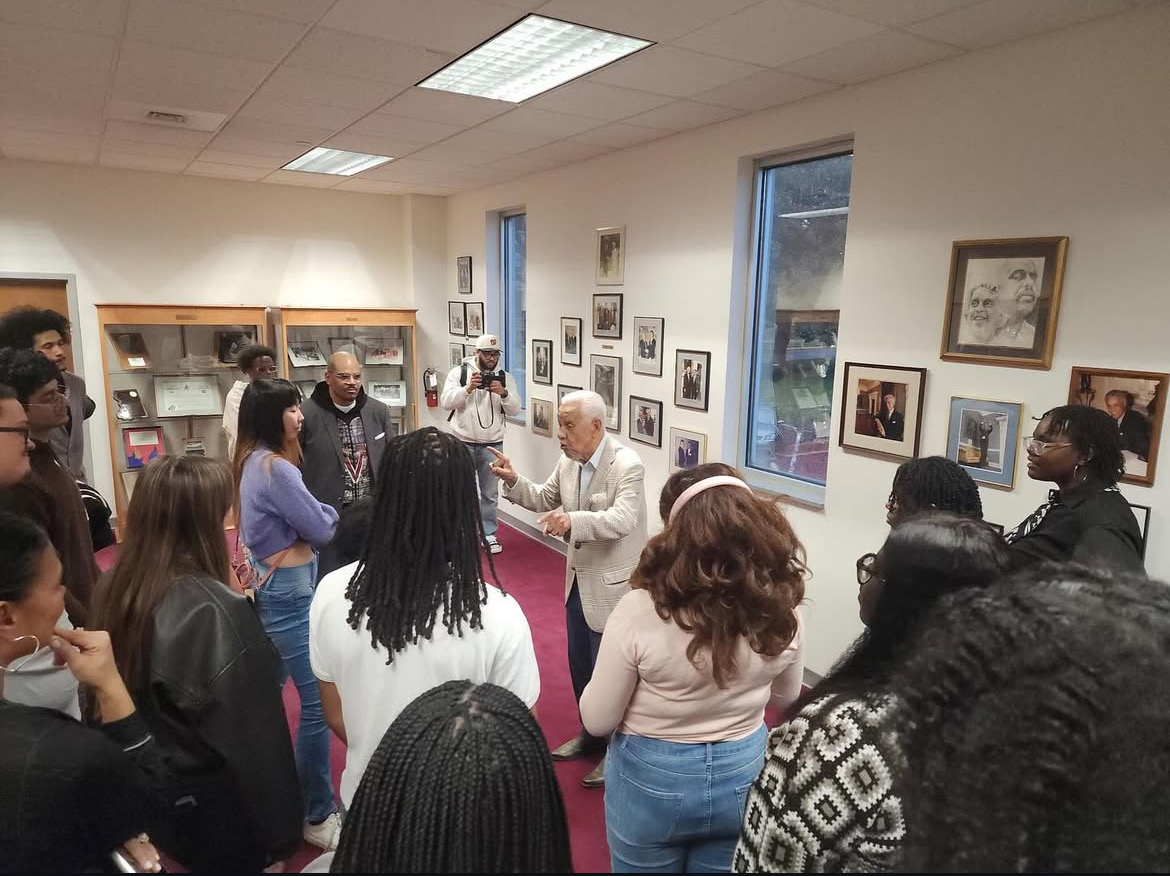This Wednesday marked the beginning of Passover, a holiday during which millions around the world celebrate the ancient Israelites fleeing from slavery in Egypt. At the end of a Passover dinner, it’s not uncommon to hear the phrase, “next year in Jerusalem.” The phrase, though seemingly almost militant in its Zionism, takes on different meanings for different people. Some choose to see it as a literal call to move to the state of Israel, while others (myself included) tend to view it as a metaphor for a better year to come. The irony of the expression is not lost on many, as Jerusalem in Hebrew literally means “city of peace” and Jerusalem feels like anything but that right now. With everything going on in Israel-Palestine, it’s important to ask what next year in Jerusalem will look like.
As some may know, Israel’s Prime Minister, Benjamin “Bibi” Netanyahu, attempted to overhaul the Israeli Supreme Court’s authority, allowing the majority coalition in the Israeli parliament, the Knesset, to (among other things) dismiss judges, remove unreasonableness as grounds for dismissal on court cases and overturn Supreme Court opinions with a simple majority in the Knesset. I don’t think that it takes a political mastermind to realize that all of these proposals are, at best, nerfing the delicate separation of powers by killing the process of judicial review and, at worst, solidifying Bibi’s legacy for decades to come.
By itself, this would be a ginormous political catastrophe and would merit concerns from democratic countries from around the world. But this is just a link in the chain of events that has unraveled in the last half-decade. From criminal investigations to extreme right-wing racists like Itmar Ben Gvir in his cabinet, Bibi has monopolized the Israeli national and international attention span with what feels like a never-ending cycle of baloney. In all honesty, when I first heard about the judicial reforms, I was no longer in disbelief or shock. It came as no surprise that Bibi’s party, Likud, and other right-wing parties would try this. In the last couple of years, my belief that Israel (a country with many flaws) could ever hope to become a beacon of democracy for the world has dropped lower than the Dead Sea.
But it’s not just important that I just care about this, I think that everyone should care about a potential collapse of the judiciary, regardless of where you stand on Israel. At Carleton, Israel is often viewed as a dirty word, a country steeped in human rights abuses and international attention. For the average Carleton student who sees Israel as an apartheid state hell-bent on killing Palestinians and removing them from their homes, it’s not unreasonable to think that any support for anything Israeli is condoning the actions of the whole country. This assertion, built on good intentions, doesn’t stand up to real-world consequences. There needs to be a point when ideology doesn’t blind you from the reality of the situation. Israel will not magically disappear overnight. If you believe that the Israeli government should stop kicking Palestinians out of their homes in Jerusalem or should protect Ethiopian migrants, then the Supreme Court is the best option. Not only has the Supreme Court of Israel worked to block settler expansion in the West Bank, but it’s also the only institution in the Israeli government that seems to have any interest in doing so.
But, as if the judicial reforms weren’t enough, Israeli police have stormed the Al-Aqsa mosque twice in the past two days, injuring dozens in the process. The Israeli justification for this, as presented by the Israeli Defense Force and Israeli police, is that Muslims in the mosque were shooting fireworks and holding rocks, an act that the Israeli police claim “desecrated the third-holiest site in Islam.” Given that the mosque is a site designated for Muslims and is under Jordanian Waqf’s jurisdiction, I think that Israel lacks the authority to opine on the mosque’s sanctity. Similar events happen every year during Ramadan where Palestinians throw rocks or other objects at Israelis and Israel responds by either a preemptive operation or by further escalation. In the case of Wednesday and Thursday, it was entirely preemptive. No Israelis had been injured as a result of the youth in the mosque. This “security measure” was entirely preemptive, because of suspicions over youth with rocks and fireworks who happened to be right next to the Western Wall, a site where many Jews come to pray. Israel didn’t need to evacuate the whole mosque and start an entire stream of attacks that did hurt Israelis, such as the rockets launched from Lebanon, and yet they did. This trend in preemptive policing that leads to Israelis getting hurt in the long run seems to me to be a dangerous trend that, if continued, will lead to many unnecessary casualties.
It’s times like these that make it difficult for non-Israelis to feel compelled to discuss the Supreme Court and what’s to come of Israel and a future Palestinian State. But this concept of seeing Israel as an inherently flawed state (too flawed to fix) ignores the plight that many people face right now. The Supreme Court of Israel has upheld the sanctity of Muslim control over the mosque, such as in May, when they affirmed the ban on non-Muslims praying there. Beyond the mosque, the Supreme Court has recently upheld the right of a Palestinian family to live in Jerusalem after many attempts to evict them, a process that nerfs a previous government initiative. The Supreme Court has also protected gay surrogacy rights, making Israel the only country in the region to do so. I’m not going to say that things are good right now, but without a functioning and independent judiciary, things will be so much worse.
In any case, Israel is far from perfect and has found itself on numerous occasions on the wrong side of history, but that’s no reason to believe that supporting an independent judiciary that can defend some of the most vulnerable people of a region from oppression makes you complicit with the actions of the rest of the Israeli government. I don’t think that it is a controversial take to say that Israel has harmed people, so let’s protect the institution that is inhibiting more harm.
I’m anxious about the future of Israel and Palestine because I do have hope for an independent, free and sovereign Palestinian State in the same way that I have hope for a just and peaceful Israel. I am, however, scared about the prospects of both of those outcomes. The events happening recently have stopped feeling like incidents and have started to feel like a trend. I’m anxious about what will come next, and I think anyone who cares about peace in this region should be too. As Passover continues, I can’t help but worry that the phrase “next year in Jerusalem” fades from an expression of hope to an anxious question.
As always, the opinions provided here are my own and don’t necessarily reflect the opinions of the Carletonian, the Viewpoint editorial board or any student organization.










